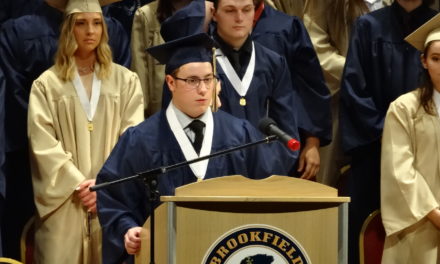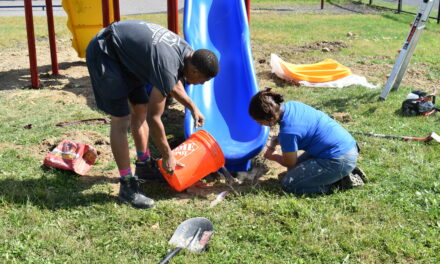Brookfield school officials are hoping the state will cough up more money.
They’re also hoping voters will agree to pay more out of pocket.
On a night when district Treasurer Jordan Weber presented a five-year forecast that showed the district running into the red by 2027, the school board took the first of the required two votes to place a 2.3-mill permanent improvement levy referendum on the November ballot.
The second vote was taken June 26, after the Trumbull County Auditor certified the proposal.
Weber said he is mandated by the state to present the forecast by the end of May, even though the state is expected to announce sometime in July how much the district will receive for the next year. While Brookfield officials did not want to speculate how much the state will give, they said they have seen projections that the amount of money could be significant.
Still, the forecast is based on current levels of state funding and does not assume that the levy will pass.
The district had received extra state funding during the COVID-19 pandemic, but that funding runs out this school year, Weber said. The most noteworthy impact on the 2023-24 budget is in teacher salaries, because salaries that had been paid by extra state funds are moving back to the district’s general fund. The line item for salaries jumps from $5.146 million this year to $6 million next year.
Officials have expected things will get tougher next year, and have been working to cut costs, Weber said.
“We’ve really been working hard all year, just kinda turning the ship around, kinda really watching, trying to take a look at what happened last year and see if there is something we can do differently this year,” he said. “I’d like to say, knock on wood, it’s been very successful.”
Supt. Toby Gibson and Maintenance Supervisor Randy Clark have been reprioritizing projects and looking to put off projects and purchases that are not urgent, Weber said, while Kristen Foster, director of teaching, learning and accountability, has been reviewing learning programs that are not being used or can be done away with.
“Everyone’s really taking ownership of their own budgets,” Weber said.
 The forecast predicts the district will spend more than it brings in each year until its fund balance runs out in 2027.
The forecast predicts the district will spend more than it brings in each year until its fund balance runs out in 2027.
“This really is kind of worst case scenario, as in what does it look like if we really don’t make many substantial changes to staffing levels, which that’s obviously the goal – we don’t want to disrupt the flow of education – but a worst case scenario if the state doesn’t come through with another penny,” Weber said.
Money from a permanent improvement levy can be used for anything that has a life longer than five years, such as new construction, long-lasting repairs, athletic facilities, buses and computer infrastructure, Weber said.
The district last had a PI levy prior to the building of the school, which opened in 2011.
The auditor said the levy will bring in $337,000 a year. A home assessed at $100,000 would pay an extra $81, the auditor said.
School board member Jerry Necastro said he supports the levy in order to maintain the campus, but also to be able to free up general fund money to “consistently move our academic side forward.”
“I think it’s needed,” he said. “We have a building here that is 12, 13 years old. We’re taking money out of the general fund just to maintain it. We have items that are really gonna start to wear out in regards to the roof, the drive. We have the fields, a lot of the stuff that we might want to look at, and that we’re now able to plan.”
Board member Sarah Kurpe said the district has used grant funds to buy a school bus and upgrade bus and school safety measures, and undertaken projects to upgrade its electrical and plumbing infrastructure at the school to lower utility costs.
“I think the time is ready,” Kurpe said. “We need to think ahead, as you’re talking about planning. We have a lot to be proud of, and we need a sustainable plan.”
“I think this is a natural next step to continue the success we’ve been on,” she said.








